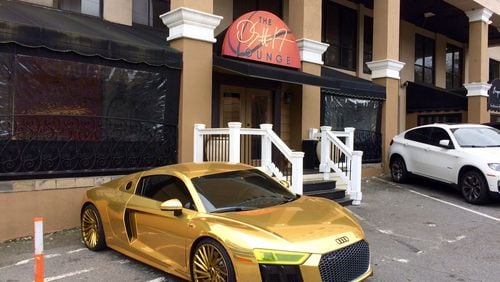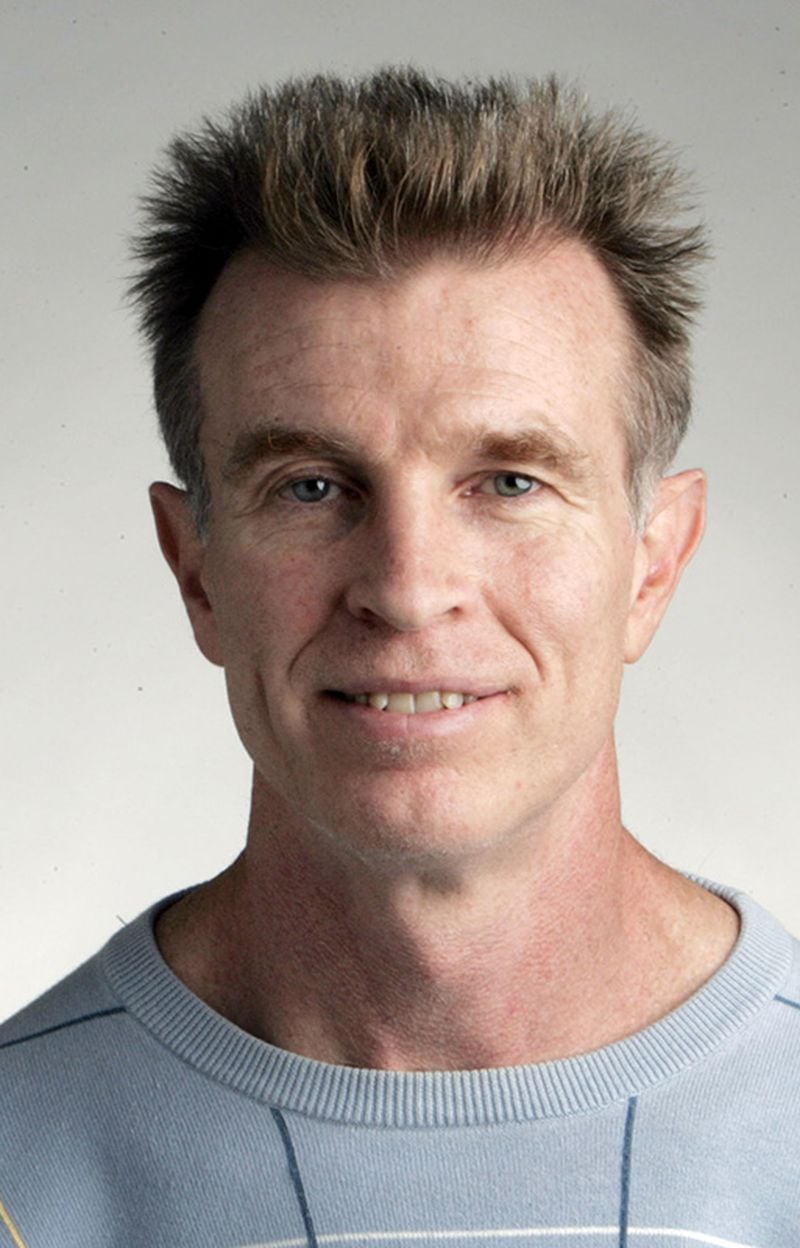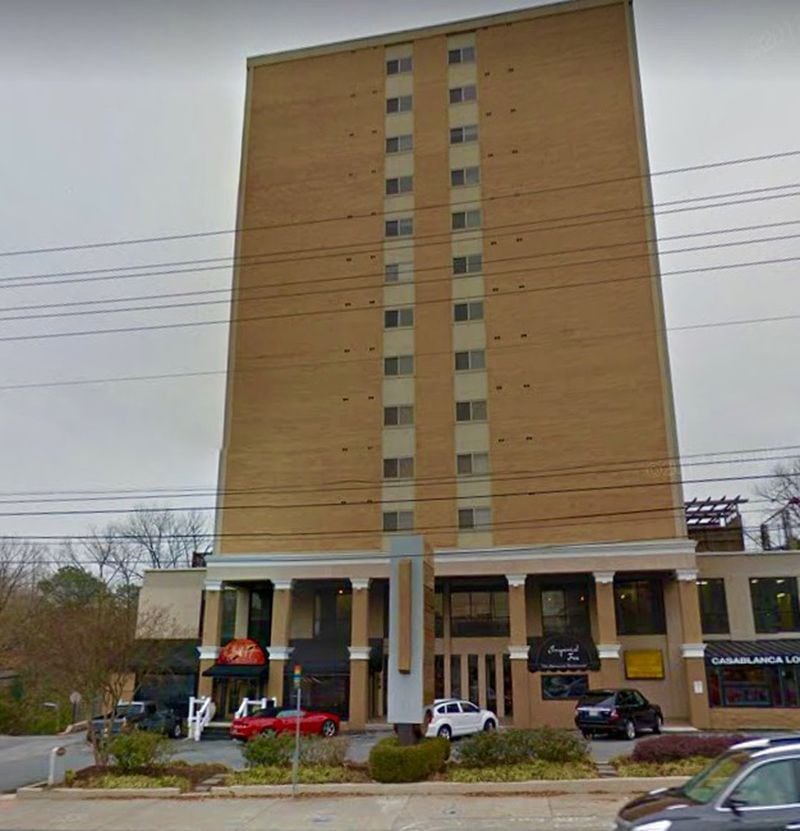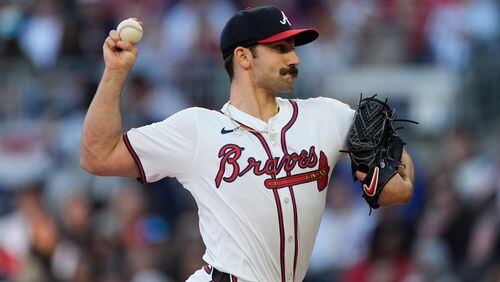For the past year, residents in the 109 units of the Peachtree Battle Condominiums have endured the “THUMP! THUMP! THUMPING!” exuberance of the dance club downstairs.
DS17, the club bearing the initials and number of one of its owners, Atlanta Hawks star Dennis Schroder, is one of the newer late-night party places in Buckhead. It also continues another Buckhead tradition — a watering hole that generates complaints by neighbors who can't sleep.
The idea of mixed-use development — of live/work/play — has gained currency in Atlanta, as tens of thousands of folks have returned intown, ready to embrace that city vibe. And live/work/play is great — until crowds are playing under your bedroom until the wee hours.
Now, these aren’t your brand-spanking new “From the $400s!” units you see going up in the area. These are cramped, old-fashioned 1960s units, many of them inhabited by longtime residents who love the area.
Doreen Parks, 66, a 14th-floor resident, has lived there for 22 years in a 625-square-foot unit.
“It’s so bad you don’t realize how much your life can change because of a crazy club,” Parks told me. “It’s amazing to me this kind of conduct can occur in a residential building.
“Listen, I went to clubs in my 20s and 30s. The people in the club just don’t know there’s a building full of residents above. It shouldn’t interfere with the 100 people who live and work and are trying to sleep.”
The long-running saga has caused frustration for residents, politicians and even the police who have been asked to shush the situation.
Atlanta police Maj. Barry Shaw, who took over the city’s northside Zone 2 in January, said police are in a “tough spot.”
“Residents want the city to shut them down, but it’s not something the police do,” said Shaw, who knows all about “quality of life” issues, having run Atlanta’s codes enforcement division.
“You have to be into some serious, serious violations for that to happen,” he said. “Even if we do get noise violations, I dunno if that will do it.”
And until now, Shaw said, the club hasn’t gotten a noise violation, even though he has tried.
In fact, the club may be perfectly legal and within its rights to THUMP, THUMP, THUMP.
In answers to e-mailed questions, club management said, “DS17 is exploring the possibility of adding sound-proofing materials, but does not believe it is necessary to do so to remain in compliance with the city of Atlanta sound ordinance. DS17 remains mindful of its residential neighbors, however, when determining the volume of its music.”
The management added, “In a live/work/play world, however, it is likely impossible to satisfy all residents neighboring a commercial establishment.”
In March 2016, according to management, “DS17 assumed the Euro Hookah Lounge’s business and continued operations.”
DS17 is next to the long-running Imperial Fez restaurant and is in a space that had a hard time keeping tenants.
Within months, residents were complaining about noisy patrons, fights, garbage, traffic and illegal activities in the parking garage. But most of all, it’s been the noise.
In November, Schroder's agent, Alexandros Saratsis, wrote a resident saying, "Dennis is a good kid and I think he is starting to understand the responsibility of owning a lounge."
Schroder had recently signed a 4-year, $70 million contract extension. He is now locked in the NBA playoffs.
Despite the agent’s vow, residents have continued fuming for months.
In January, condo association president Clay McAbee explained the routine to City Councilman Howard Shook in an email after a particularly rambunctious night: “A resident calls 911 because they can’t sleep because of the noise. Police arrive, sometimes hours later. The club turns down the music while the officer is there and as soon as they leave, the music is turned back up to 11.”
Party on. I printed out more than 50 pages of emails of complaints.
Until January, DS17 stayed open until 6 a.m., which is legal, although club management said no alcohol was served after the 2:30 a.m. liquor shutoff.
The club has stopped this and has cut down on the number of other bothersome incidents by hiring more off-duty cops.
But resident Frederick Frankie, a retired Navy man, said he can still feel the music on the top floor where he lives.
“Two weeks ago, I could hear the lyrics,” Frankie said. “If I can hear it on 14, the people on the third or fourth (floors) are really having it bad. One guy goes off on weekends to be at his girlfriend’s apartment; he doesn’t want to deal with it.”
Councilman Shook said he has twice helped rewrite the city’s noise ordinance, a process he calls “excruciating.”
“APD hates writing noise complaints because the solicitor hates those cases and the judges hate those cases,” Shook said in an interview.
The ordinance can be complicated and confusing. It limits decibel levels to 65 at night in a commercial area (60 is a clothes dryer, 70 a hair dryer). It also states, “During nighttime hours, sound emanating from any noise source shall be limited in volume, tone and intensity so that the sound shall not be plainly audible to any person at a distance of 50 or more feet from the real property line.”
“I’ve sent a lot of officers out there,” Maj. Shaw said. “They can’t verify. They’re not getting music coming 50 feet out.”
The residents, he said, are hearing, even feeling, the low end of the sound spectrum. “The bass, as annoying as it is, won’t show up as a noise violation,” he said.
George Nowack, an attorney working with the residents, said: “This is the textbook case of a mixed-use building. But that building never had a nightclub beneath. They always had a restaurant.
“The noise may not violate the noise ordinance. That does not negate the fact that it bothers them. It’s disturbing but it may not be illegal.”










